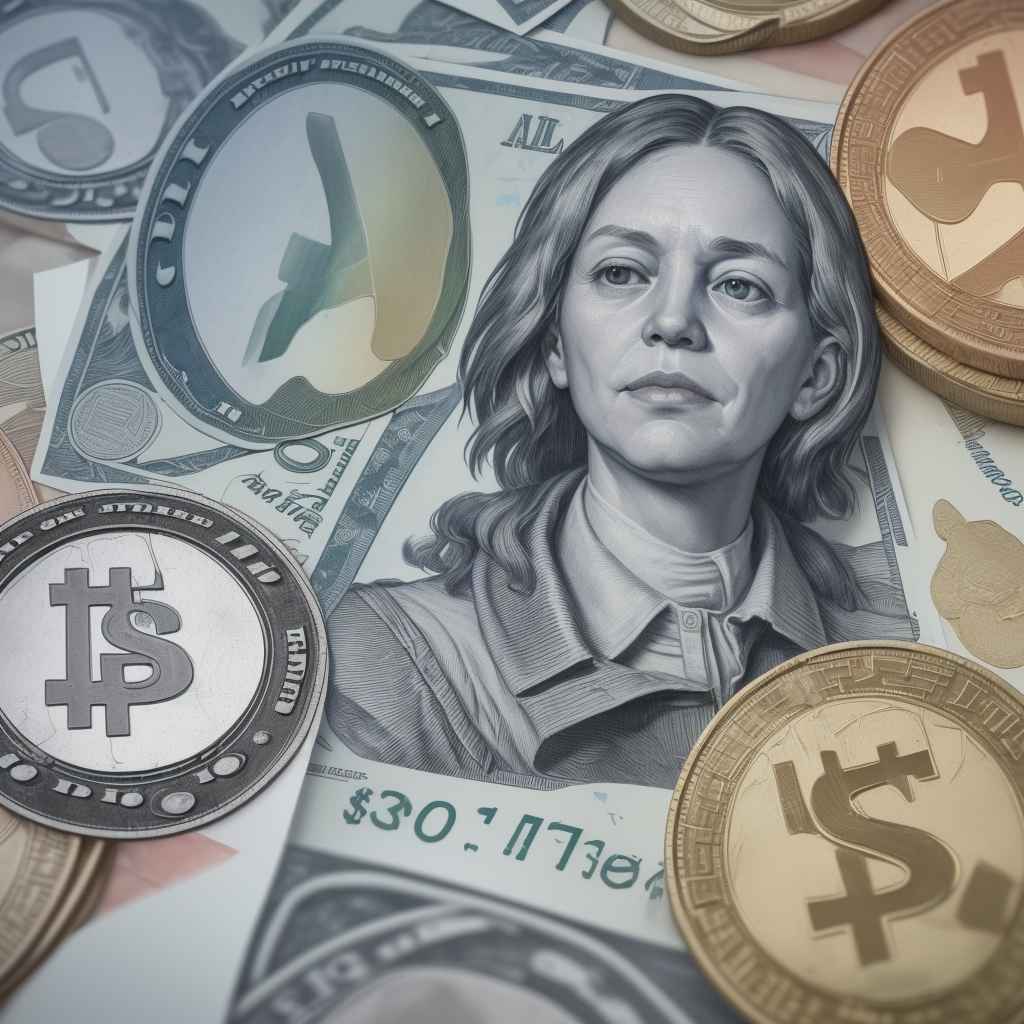
SEC's Flawed Assessment of USD-Stablecoin Market
US SEC Stablecoin Guidelines Challenged by Caroline Crenshaw
The US Securities and Exchange Commission (SEC) has faced criticism from Caroline Crenshaw, a former SEC official, who has challenged the agency's recent guidelines on stablecoins.
In a recent interview, Crenshaw, who served as the SEC's Director of the Division of Corporation Finance from 2018 to 2021, expressed concerns that the SEC's guidelines may not be adequate to protect investors in the rapidly growing stablecoin market.
Stablecoins are a type of cryptocurrency that is pegged to the value of a fiat currency, such as the US dollar. They have gained popularity in recent years due to their stability and potential use cases in transactions and trading.
Crenshaw, who is now a partner at the law firm, Davis Polk & Wardwell, believes that the SEC's guidelines may not be sufficient to ensure that stablecoins are properly regulated and that investors are adequately protected.
"I think the SEC's guidelines are a good start, but I think they need to go further," Crenshaw said. "The stablecoin market is a rapidly evolving space, and the SEC needs to be proactive in its regulation to ensure that investors are protected."
Crenshaw's comments come as the SEC is facing increasing pressure to regulate the stablecoin market. Stablecoins have gained popularity in recent years, and many experts believe that they have the potential to disrupt traditional financial systems.
However, the SEC has faced criticism for its lack of clear guidance on the regulation of stablecoins. In a recent speech, SEC Chairman Gary Gensler emphasized the need for clear guidance on the regulation of stablecoins, but many experts believe that the agency's guidelines are not sufficient to protect investors.
Crenshaw's comments add to the growing chorus of criticism of the SEC's guidelines on stablecoins. Many experts believe that the agency needs to take a more proactive approach to regulating the stablecoin market to ensure that investors are protected.
In the meantime, the stablecoin market continues to grow, and many experts believe that it has the potential to disrupt traditional financial systems. However, the lack of clear guidance on the regulation of stablecoins has left many investors and regulators concerned about the potential risks and challenges associated with this rapidly evolving market.